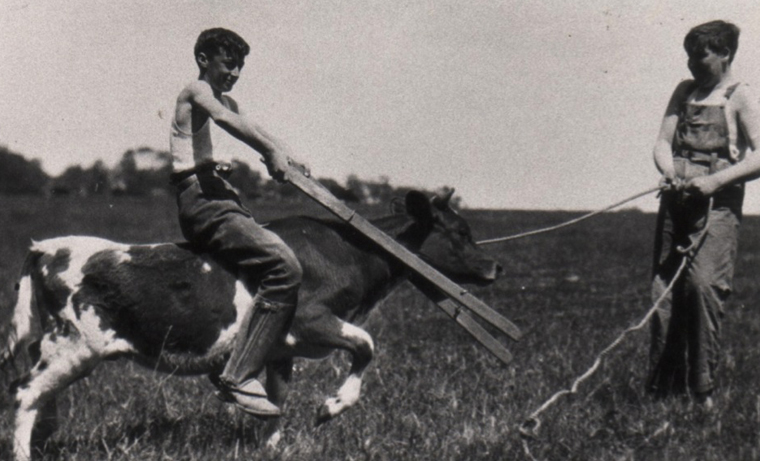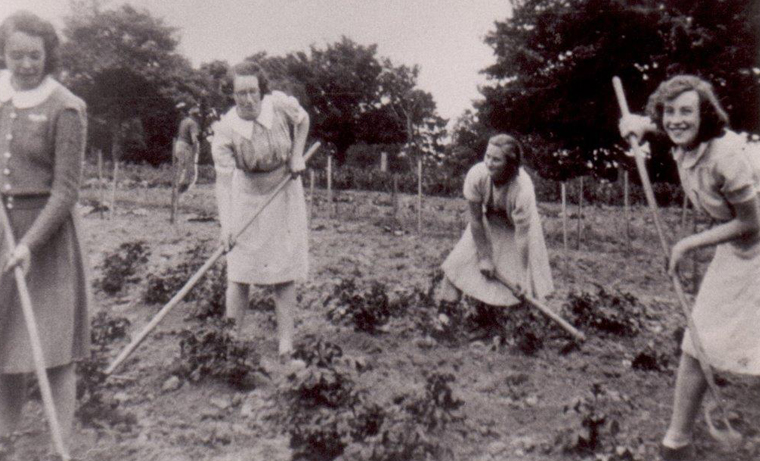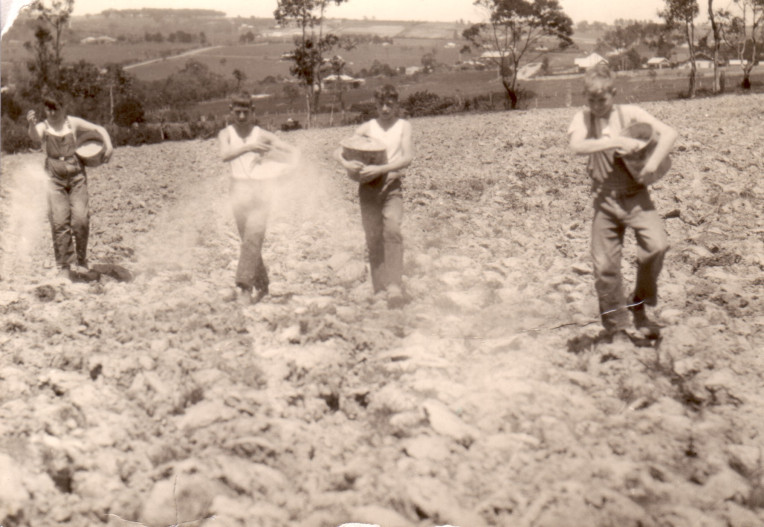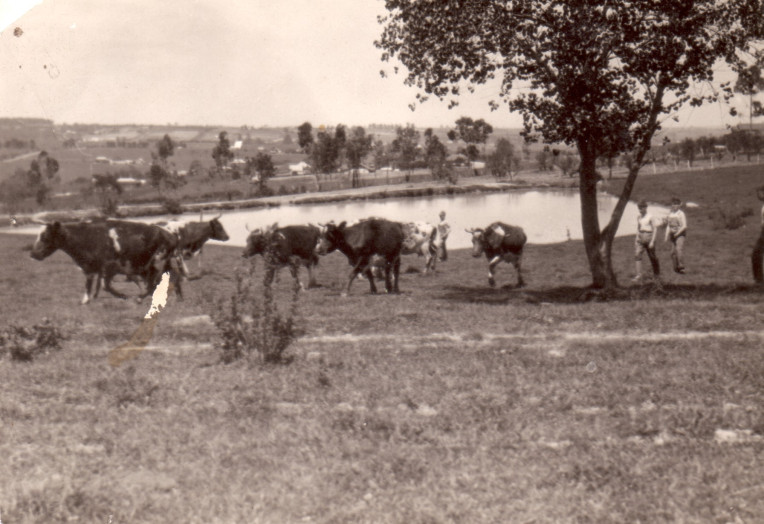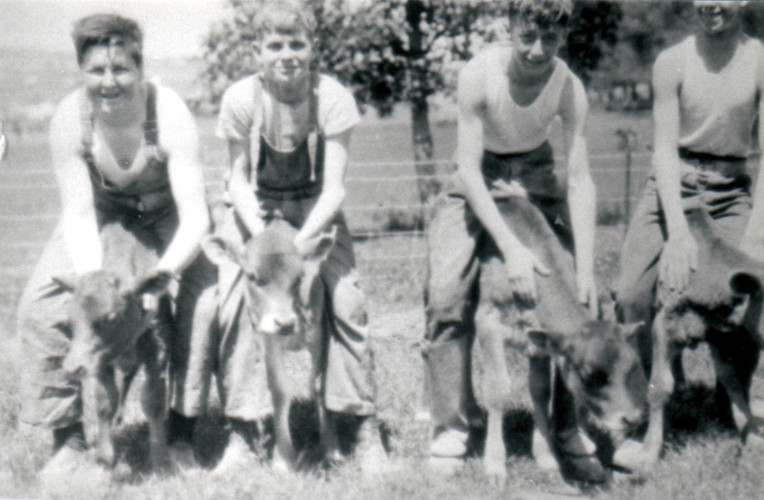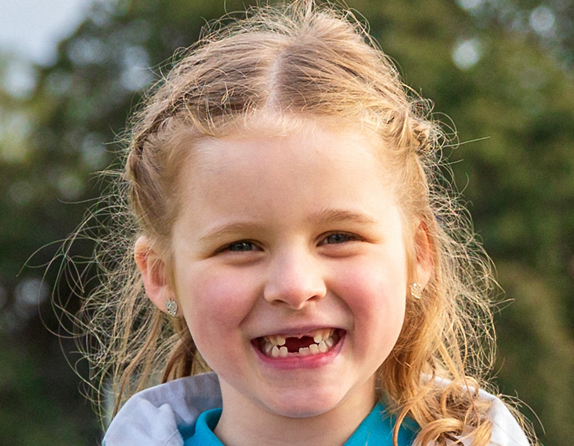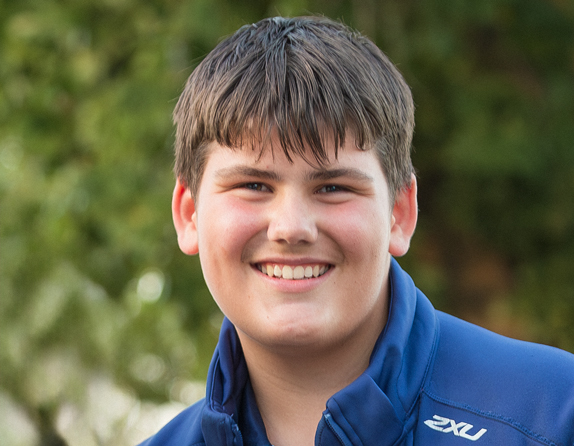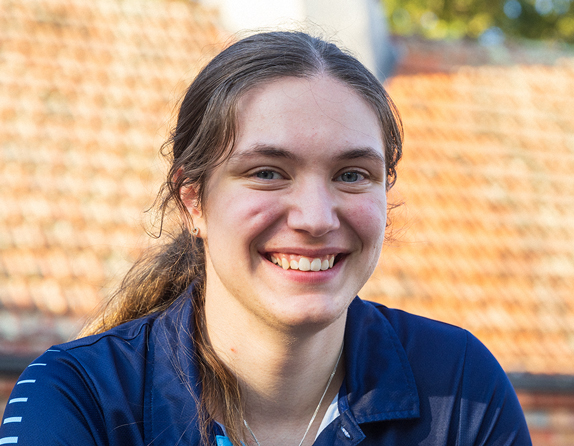During the post-Depression and WW2 years, Gwynton Park evolved into a self-sufficient farm which provided students with a rich educational curriculum.
Food prices rose dramatically during the war and the school needed to become as self-sufficient as possible.
An acre of land was fenced off and Walker purchased a draught horse, ‘Nugget’, along with some basic horse-drawn ploughing equipment. Walker undertook most of the ploughing and furrowing, and the acre was soon planted out with potatoes, beans, cabbages, pumpkins, tomatoes and turnips.
The school’s first cow, ‘Blossom’, was bought in 1931 and with acres of green grass at her disposal, she produced more milk than was needed by the students and boarders.
A milk contract was signed with a local dairyman to collect the excess milk and, to keep up the supply during winter, a herd of twelve cows was established complete with a milking shed and dairy.
This abundant supply of fresh milk, cream and vegetables ensured the meals at the school were nutritious and plentiful.
To help maintain the farm, the school’s boarders – especially those from rural backgrounds – helped out with wide range of chores. Although this work was at times tedious, it provided the students with new interests and skills.
One student recalled:
“…Mr Walker would say, ‘volunteers for weeding the garden’ and there would be dead silence. Then in his usual fashion he would point and say, ‘you, you and you’ and we would all, not too reluctantly, repair to the vegie garden and manage to have a happy time scraping and weeding.”

